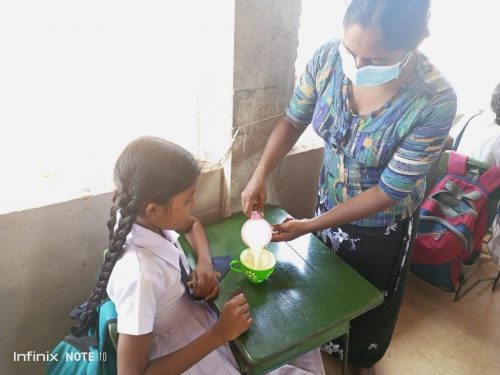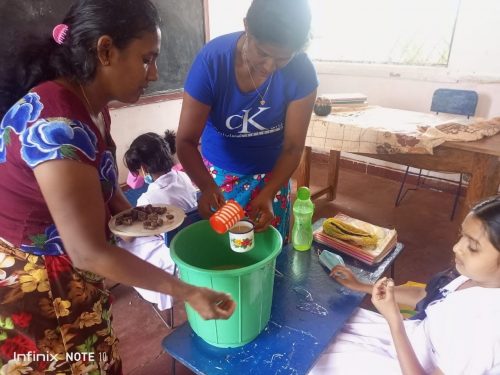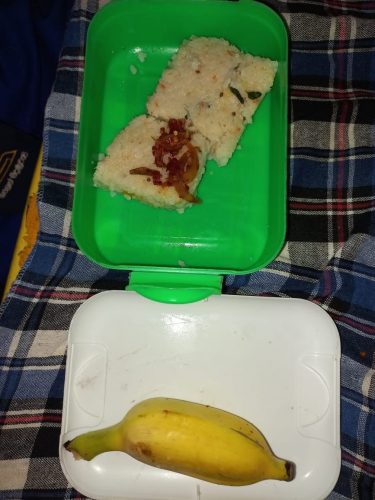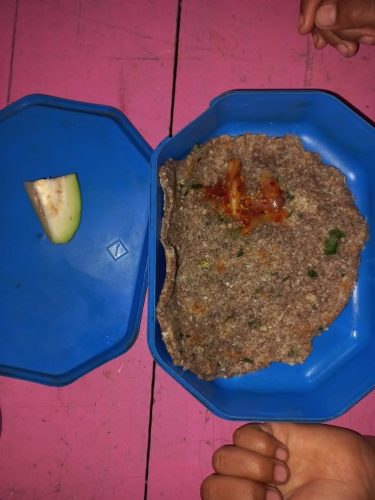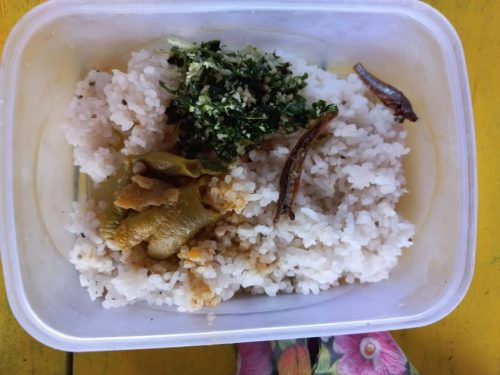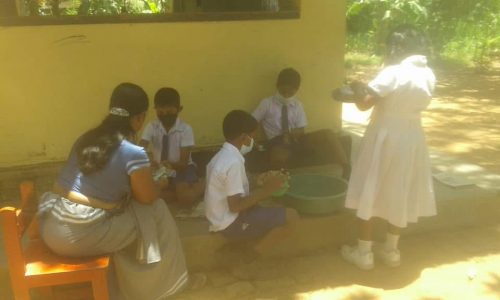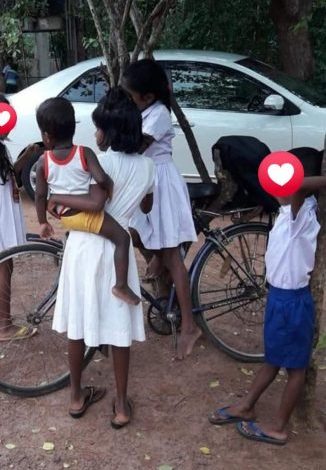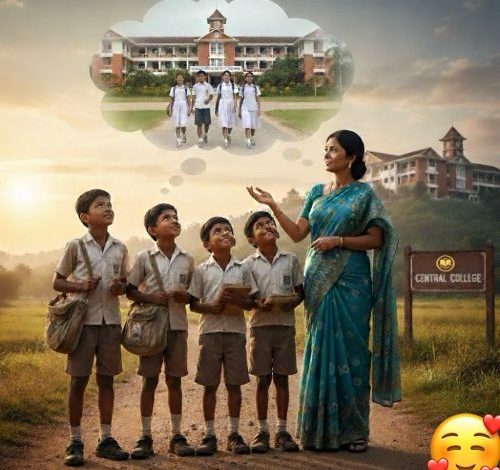Next SFP Tour is to “Ga Bi” – Galen Bindunu Wewa
SFP12 – Iluk Wewa and SFP13 – Aliya Watunu Wewa projects
Even when on maternity leave, Sarasi, the MOH of Gabi, can get things organized in a snap. This is a proven story of that.
I was discussing a community farming project with the school principal, the idea being that if the school grew enough food, they could feed the entire village.
“Sir, what do you think? Should we do it?” I asked.
In the middle of our conversation, the principal suddenly hung up. “Madam, I’ll call you back in a minute,” he said.
A minute later, he called me back.
“No rush, sir, we can talk later,” I said.
“Oh no, Madam,” he replied, “an elephant just walked in front of my office.”
That’s when my dreams of a community farm disappeared, along with the elephant. The village’s name, after all, is Aliyawetunu Wewa (the tank where the elephant fell). How can you farm with elephants around?
The two schools we’re working with are a real match for each other. I’m not sure if the schools were built in the middle of a forest where elephants roam or if the elephants just like to stroll through the schools.
At one of the schools, they’re already struggling to provide a meal. So, we decided to give them something like milk porridge every day. The government’s rice meal program might end at any time, probably in January. If that happens, we’ll shift our liquid milk program to provide rice instead. For a year now, Samanthika akka has been looking after the school. It’s a true sign that the community is empowered, and that’s enough for us.
In Iluk Wewa, the food suppliers don’t want to give food on credit, and we can’t keep doing that either. So we took matters into our own hands. Shenali single-handedly took on the task. Early in the morning, Shenali and I often see their plates of food, ready to go.
The children and teachers are all in, preparing the school for our project. Every day is a different meal. We started by giving them coconut sambol and rice, but now their bellies are filled with rice, eggs, potatoes, millet roti, milk rice, and fruit. We have a variety of menus.
Don’t worry about the nutrition. What can you do with 60 rupees? You could feed a country if you gave up the commissions and profits. This is what these mothers are teaching us.
“With the leftover money, we print scholarship papers, doctor.” that is voice of the parents of school children.
If you want to build a country, you can.
The most beautiful picture in all of this is the first one: They are doing the work themselves. We’re just there to help, to sweep away the cobwebs and clean up their schools.
By Dr. Kiloshini Hendawitharana.
